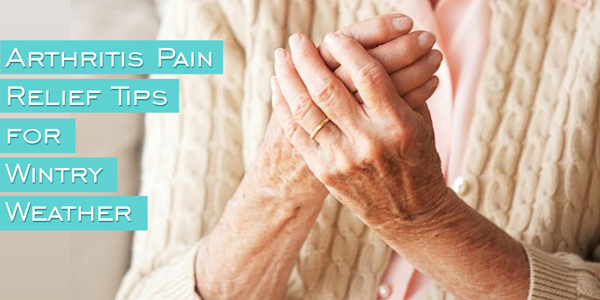With the temperatures dropping down, it is highly essential to protect your body from various health issues, most importantly joint pain which is a common complaint during wintry weather.
In cold weather, sometimes the body circulates less blood to the peripheral areas in order to conserve warm blood around the heart. This leads to stiffening of joints, thereby resulting in aches & pains.
Also, when the skin gets cold, pain sensors start working at a faster pace which is why during this season things often hurt more than they normally would.
Another reason could be that people tend to feel lazy & lethargic to indulge in most kinds of physical activities when it’s very cold outside and this too results in the stiffening of joints which triggers pain.
If you suffer from arthritis pain during winter, you’re certainly not alone. These simple pain relief tips can surely be of some help:
If it’s cold outside, make sure to keep yourself warm at all times with adequate clothing. Cover-up your hands/feet with woolen gloves, socks and added layers over knees and legs. Warm clothes increase the body’s temperature and improve blood circulation thereby reducing aches & pains.
Take warm baths. Use water that is not too cold & not too hot. Pat the skin dry and allow your body temperature to normalize before walking out of the bathroom.
Osteoarthritis patients with Vitamin D deficiency have an extremely hard time during wintry months. Vitamin D plays an important role in the production of cartilage and helps the body absorb calcium, thereby strengthening the bones. During winter, it is less likely to get sufficient amounts of vitamin D from the natural environment which is why there are chances that your joint pain may worsen during this season. Ensure that your diet is vitamin D-rich. This may also be a good time to start taking your Vitamin D supplements.
While venturing outdoors, wear good-quality shoes that provide optimum comfort to your knees and heels while walking and try to walk on a surface.
The very prominent, Heat & Cold Therapy will also help you to ease the Arthritis pain in winter. Place hot packs or warm towels on the inflamed joints. This therapy improves blood flow and increases the tolerance for pain and flexibility whereas cold therapy that includes application of cold packs, ice massages and soothing ointments numbs the nerves around the joints, thereby giving similar results.
Tea, Coffee, Aerated Drinks & Alcoholic beverages reduce the amount of calcium you absorb which leaves a negative impact on your bones, therefore keep them at bay.
Stay active indoors with a well-planned exercise regime. Doing so will not only help you maintain a healthy body weight but also strengthen the muscles and improve flexibility.
Try to soak up the sun either in the morning or evening. It will not only keep you warm but also deliver vital nutrients to the body.


